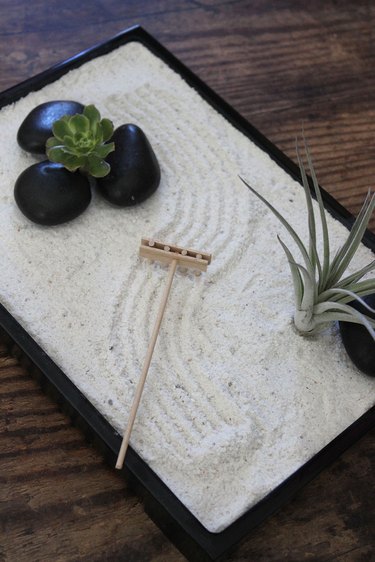If you've ever had a chance to visit an actual Japanese zen garden, you know it's a place that's designed for tranquility and meditation. Finding your inner peace from the comfort of your home or office is also possible with a tabletop version of a zen garden. It's easy to make your own since there are so few elements – usually just sand, rocks and perhaps some greenery. By arranging the rocks or raking the sand, we become more relaxed. It's a great way to clear your head and relieve stress in the middle of a work day.

Video of the Day
Things You’ll Need
-
Shallow tray
-
1/2-inch basswood strip
-
Craft knife
-
Hand drill
-
1/8-inch-diameter wood dowel
-
Sandpaper
-
Wood glue
-
Air plant
-
White sand
-
River rocks

Step 1: Select a Tray
For a tabletop zen garden, choose a shallow tray that is about half an inch deep. Ideal trays are bathroom vanity trays, which are used to display makeup on a counter.
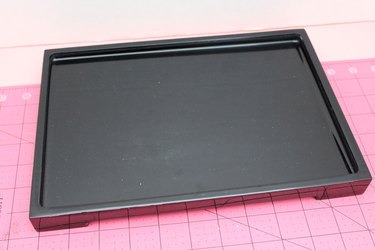
Step 2: Make a Miniature Rake
Start with a 1/2-inch strip of basswood that is 1/16 inch thick, which you can find at a craft or hobby store. With a craft knife, cut two sections that are 1 1/2 inches long.
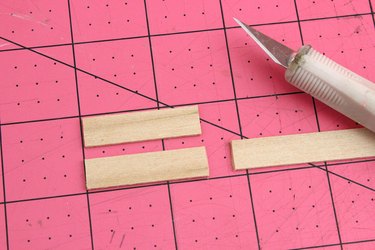
In the center of one of these wood strips, drill a small hole with a 1/8-inch bit. Basswood is so soft that you can use a hand drill instead of an electric one.
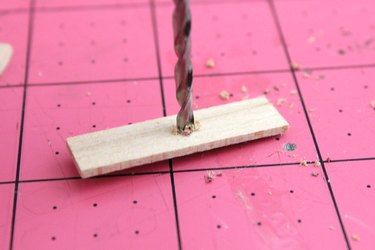
From an 1/8-inch-diameter wood dowel, cut a 5-inch section for the rake handle with a craft knife. Also, cut four 3/4-inch sections for the rake tines.
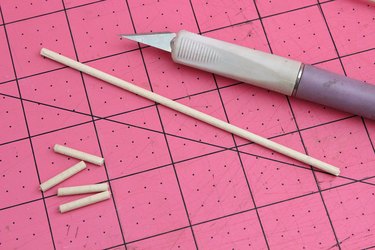
Sand the ends of the dowel pieces so they are smooth.

With wood glue, attach the wood rake tines to the wood strip without the hole.

Glue the wood strip with the hole on top of the tines so they are sandwiched between the two strips. Insert the handle into the hole with a dab of glue and press down until it makes contact with the wood strip below. Allow the glue to dry.
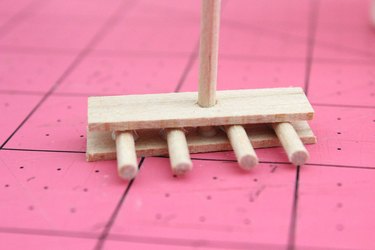
Tip
The measurements of the basswood strips and dowels can vary depending on what you find. Your rake does not need to be these exact measurements.
Step 3: Prepare the Air Plant
To add some greenery to your zen garden, you can use a small artificial shrub or an air plant, like a tillandsia. If using a tillandsia, place it in a bowl of water to hydrate it since it has likely been sitting in the store without any watering. After an hour, remove the plant and dry it on a paper towel for another hour.
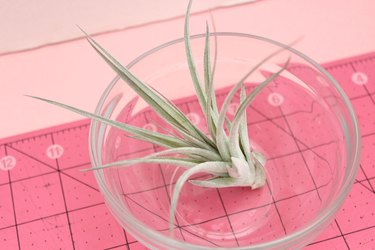
Step 4: Fill the Tray With Sand
Pour fine white sand into the tray. A finer sand will show the markings of the rake much more clearly than a coarse sand.

With the flat side of the rake, even out the surface of the sand.
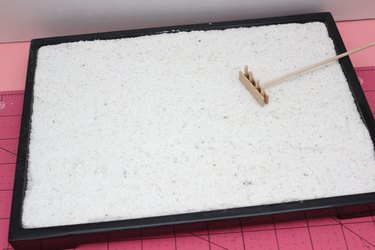
Step 5: Position the Rocks
When placing elements in the zen garden, consider two Japanese concepts: kanso and fukinsei. Kanso is simplicity, so keep the elements you add to a minimum. Fukinsei refers to the beauty in asymmetry. Therefore, arrangements that are uneven and not centered are preferable. Keep this asymmetry in mind when positioning the river rocks in the garden. Place the rocks in a variety of positions until you are content with the arrangement. This is an activity that you can do every day, as arranging the rocks can be very relaxing.
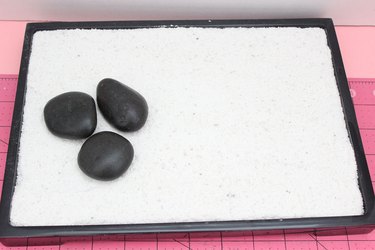
Step 6: Position the Plant
Place the air plant in the garden, trying out a few positions until you are happy. Remember that you can rearrange the plant whenever you like. If the plant is top heavy, position it next to a rock to help it stand.
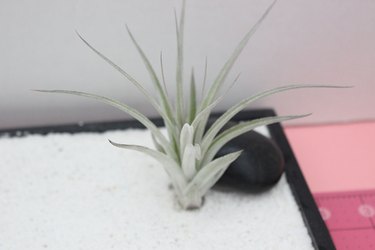
Step 7: Rake the Sand
The most relaxing activity associated with this zen garden is raking the sand. In moving the rake along the sand, you create lines that mimic waves of water. You can create new patterns every time you revisit the garden. Use the flat edge of the rake to start over.
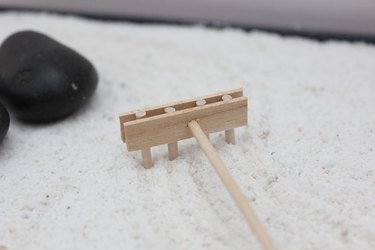
The beauty of the zen garden and the repetitive motions of raking the sand or arranging the rocks enhance your overall mental well-being.
